[Repost] John Hopcroft: Transforming University Education in China
Forward from: https://mp.weixin.qq.com/s/88apXpKBZx4VyROdZvoFHg
As we gradually step into the Courtyard No. 5 at Jingyuan, droplets of dew are set upon the verdant grass on a misty school day morning. The Center on Frontiers of Computing Studies at Peking University, directed by the world-renowned scholar and educator, Professor John Hopcroft, is located in this quiet part on campus. In this quaint piece of land, countless students have been enlightened and permeated by the unique teaching philosophies applied here. With students indulging in an environment full of wisdom, global vision and promise, Professor John Hopcroft has created a haven where intellectual curiosity is ignited and thrived.
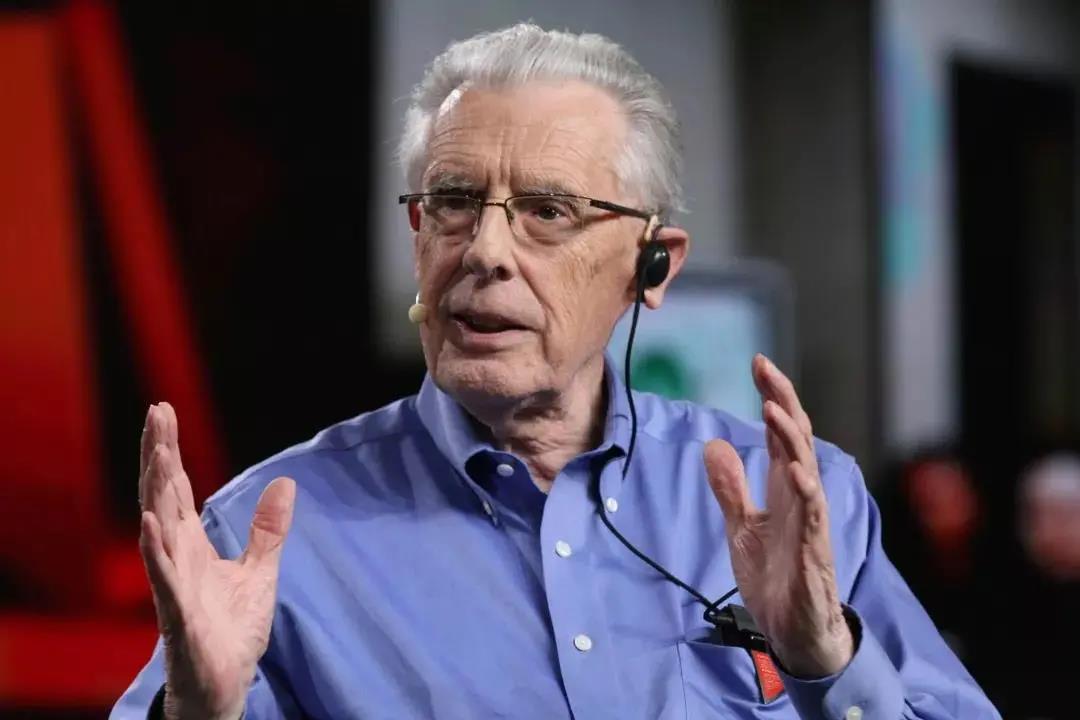
How was Professor John Hopcroft himself educated?
Growing up, Professor John Hopcroft has never been entitled to a "right" or "stable" path of life. Back in high school, students were given an hour to finish homework at school, so no leftovers at home. John usually finish his homework during this one hour time slot, and by three o'clock in the afternoon, he would be available to go out and hangout with his peers. He didn't have pressure when it came to getting into top universities or choosing certain majors that were considered the prerequisite of a successful life, and yet, as he reflects on his early childhood, he believes that the environment which allowed him to play and explore the world has proved to helped him become who he is.
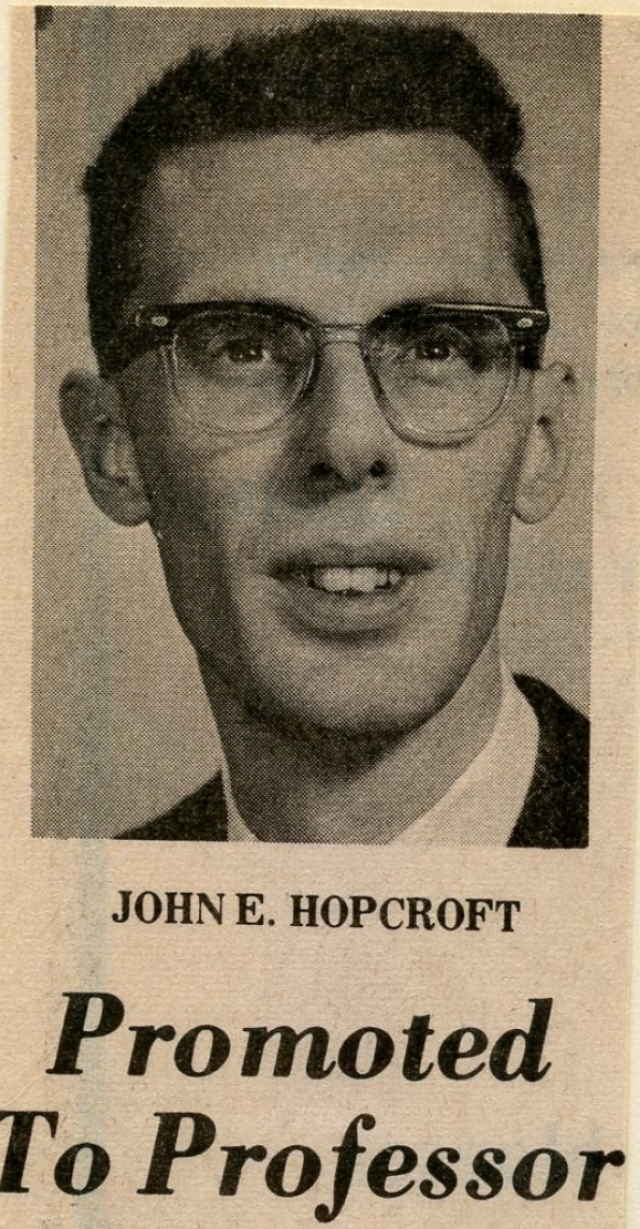
Thanks to his freedom to explore his career path, he successfully realized his passion in computer science and education. After graduating from high school, Hopcroft enrolled in Seattle University. After receiving his bachelors of Science, he enrolled in his PhD program at Stanford University. At that time, Stanford did not offer computer science majors, so John studied electronic engineering instead. He obtained his master's and doctorate's degrees in 3 years by the age of 24.

During his studies, a physics teacher at Seattle University asked Hopcroft to help fix a computer program. That was his first time being exposed to a computer. In the early age of computer science development, there was no computer language (aka "coding" nowadays). Hopcroft created 10 symbols in assembly language when fixing the bug. Later, he took a programming class where he realized that rather than dealing with physical devices, he was better at theoretical studies. After realizing his long-hidden calling, he took a teaching position at Princeton upon graduating from Stanford, hence started his career in computer science education in the United States.
What are the differences between US and Chinese post-secondary educational system?
Later in his life, Professor Hopcroft found his purpose in educating the next generation what he has learned during his years in computer science, all of which adhered to this central principle – always stay curious about the things you wish to understand, and to explore everything that you are interested in, regardless of whether it brings you materialized profits. In 2011, John decided to come to China, a place full of young talents but lack of standardized high-quality university education. "China has one-fifth of the world's talents," John states. "By improving computer science programs in top Chinese universities, there would be a substantial upgrade of teaching style and program content, which would raise the educational level of computer science programs in China as a whole."
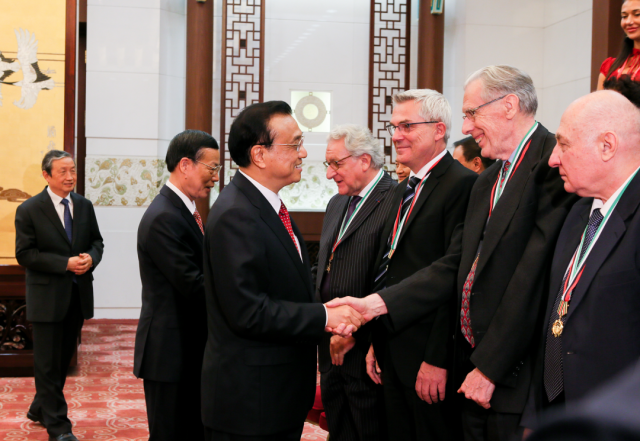
John was invited to a discussion session with Chinese Premier Li Keqiang
Comparing to the US post-secondary system, the Chinese educational system is loaded with applied research, ended up insufficient basic research accomplished. Schools in China have much collaboration with their corresponding industries, which resulted in many private companies expecting students to answer to corporate needs when conducting their own research or entering the job market. Hence, faculty and students alike tend to focus more on applied research, which were mainly for business purposes instead of intellectual curiosity.
On the contrary, while applied research does exist in the United States, they are usually done by corporate-employed scientists. In educational institutions, US faculty and students concentrate on basic research, where research is done for academic purpose, focusing on scientific curiosity. Basic research is where new scientific findings become known in society, and it propels the development of modern science as a whole. John believes that the Chinese education system needs to be more basic research-oriented, so that not only corporate needs are satisfied, but science can also develop in the process.
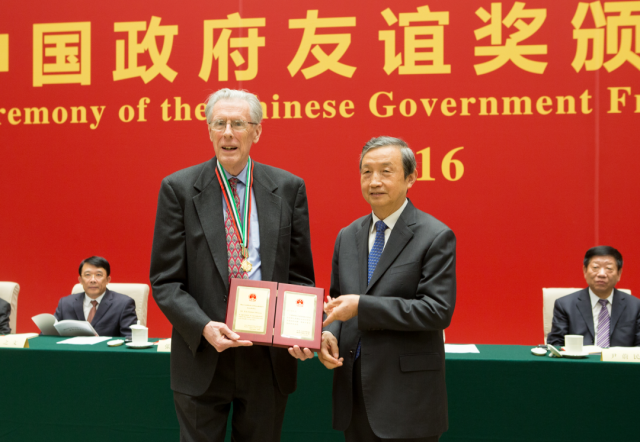
John was awarded the “Chinese Government Friendship Award” in 2016
The faculty construction of Chinese universities is also different from that of the U.S. In the United States, when students go to college, they applied to schools instead of specific disciplines. Students could go to a school which interests them, and explore the different tracks that they venture within the field. Usually, not until the second year do most students decide what they are going to focus on as their major.
By observing Chinese university education, Professor Hopcroft points out that most students apply according to their parents' recommendations, or whichever school their Gaokao scores can get them into. Segmented disciplines in high school, such as the separation between the "science" and "humanities" curriculum, hamper students' exploration in other areas of study, which in turn limits students to focus on a narrow field they might not be so interested in later on. Under this structure, it is hard for students to find out what they are truly passionate about.
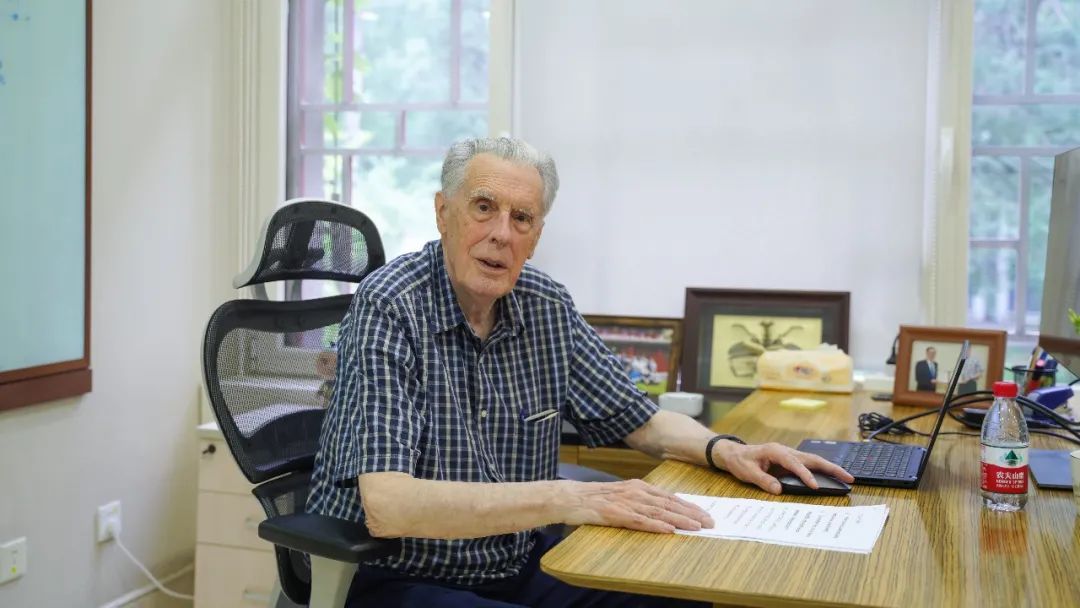
The spirit of education is to provide students with what they love doing for the rest of their lives. To do so, John firmly believes that post-secondary education needs to focus on personal long-term growth rather than short-term practical gains. In his perspective, three steps could be taken to improve education in China. Firstly, engage students more in classes, thus the teaching quality can be significantly upgraded. Secondly, separate applied research from university programs, which would give scholars more freedom to explore their passion and to examine the greater world of science. Thirdly, give students more time and space to discover their interests, and learning what they enjoy, which would all accumulate into invaluable life-experiences, thus greatly increasing their chances of achieving success in the future.
Have you heard of the Turing Class Program?
In1986, Professor Hopcroft was awarded the Turing Prize, often regarded as the "Nobel Prize of Computer and Information Technology", for his groundbreaking contributions in the field of algorithm design and analysis. He became an elected member of the American Academy of Arts and Sciences, the National Academy of Engineering and the National Academy of Sciences in 1987, 1989 and 2009. In 2017, the same year Professor Hopcroft was appointed the Foreign Academician of the Chinese Academy of Sciences, he officially became an indispensable member at PKU by establishing himself as a visiting scholar andthe director of The Center on Frontiers of Computing Studies at Peking University.
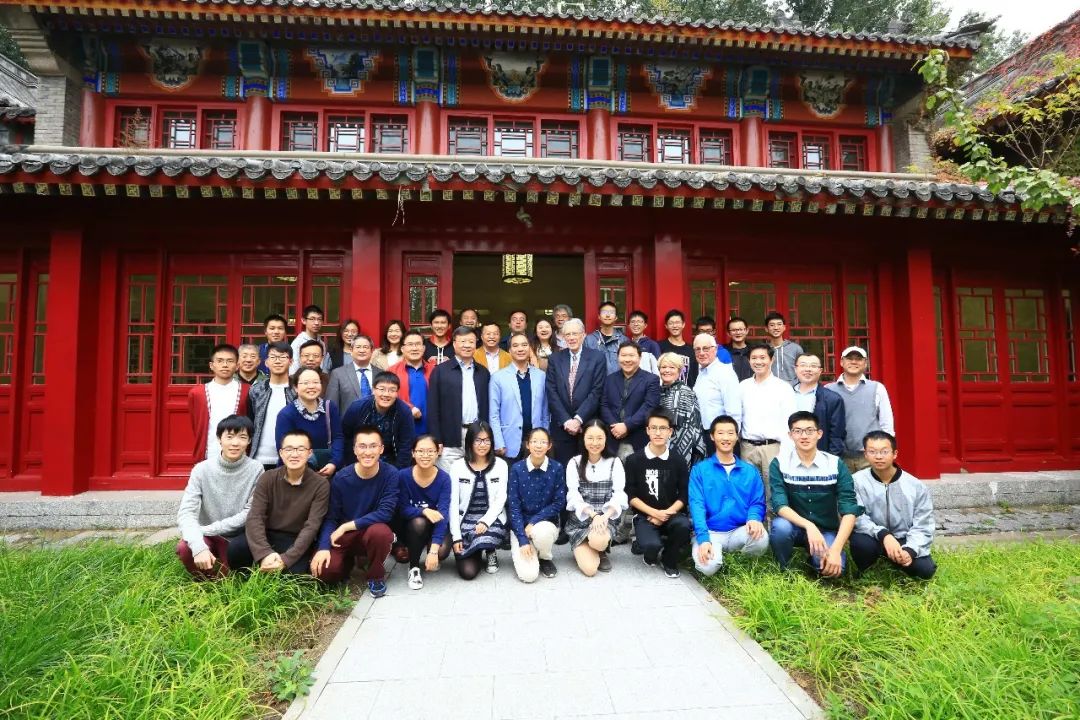
John with students of PKU Turing Class
PKU's Turing Class Program, founded by School of Electronics Engineering and Computer Science (EECS) in 2017, aimed to empower the next generation of computer scientists and engineers excelling at both theoretical knowledge and practicals in the vast field of computer sciences. Located in the beautiful Jingyuan's No.5 Courtyard, the Turing Class Program has evolved into a multi-disciplinary and cross-fusion computing theory and application support center, as well as the home to innovative computer science research conducted by the some of the brightest minds in the computer science program.
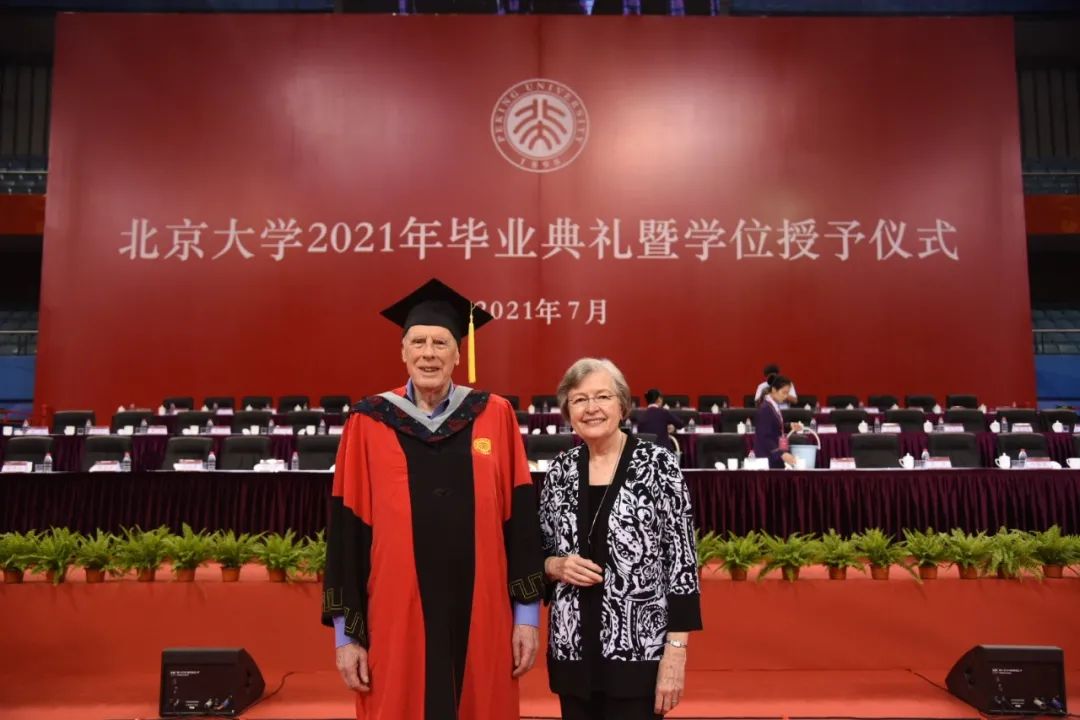
John attending The Peking University Graduation Ceremony 2021
Professor Hopcroft presides over the Turing Program. Under his guidance, the program has employed a number of top scholars at home and abroad, including three Turing Award winners, to introduce the most up-to-date knowledge. Established in 2016, the Turing Class Program, with the student enrollment of 30 that year, is keen on building itself as a "small but mighty" program at PKU. Each year, the Turing Class would gather some of the most brilliant students in PKU and across the nation; together in one tight-knit class, those elite young scholars would learn from each other, conduct projects requiring efficient teamwork and create long-lasting friendships which would ultimately enable each and every one of them to release their full potential. "In our class [of 2016], many classmates have been team members and winners of several notable Computer Science Competitions, such as The ICPC International Collegiate Programming Contest. The people around me are really excellent and hard-working, which pushes me to try harder everyday," said Chen Hongyin, a student of the 2016 Turing Class.
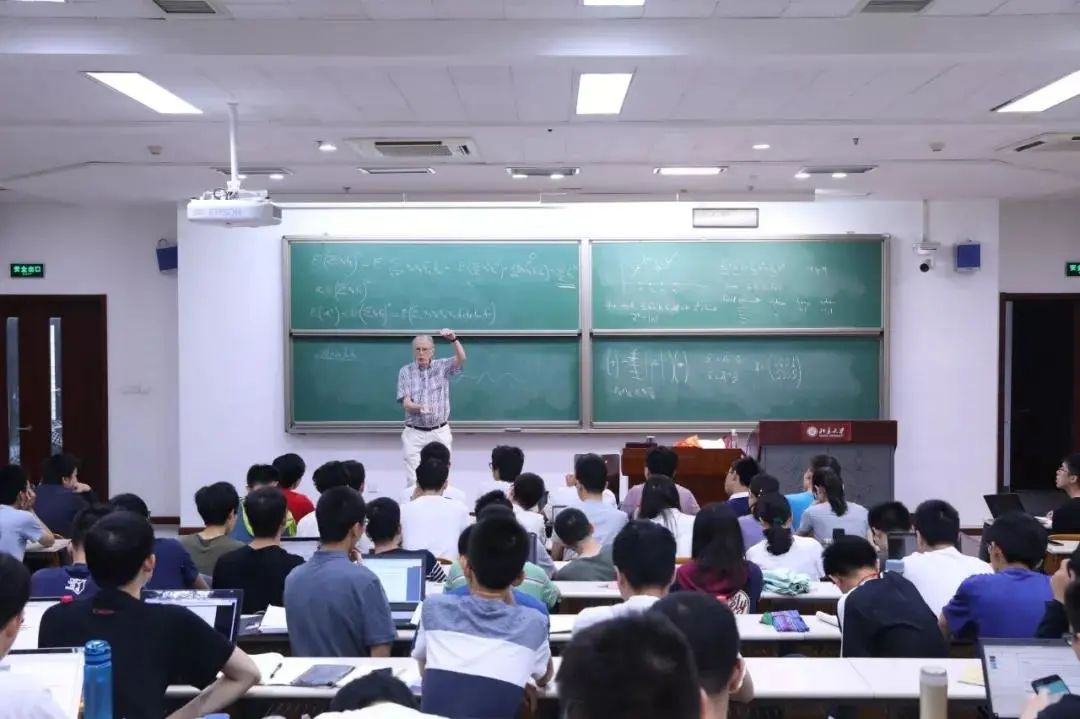
John giving a lecture to his Turning Program students
Since the establishment of The Turing Class Program, the innovative class structure formations and course designs were the essential components that set this program apart from the other computer science programs in China. With the aim of educating the next generations of IT pioneers, students would be exposed to computer science as an interdisciplinary subject, as the program would provide many opportunities across different fields to marvel and indulge in while completing the foundations of computer science. With entry-level courses such as Discrete Mathematics, Mathematical Foundation of Information Field Dynamics, Theoretical Computer Science and many more taught exclusively by Professor Hopcroft himself, numerous experts and researchers from top-notch universities abroad, such as Cornell University, would be teaching the mandatory computer science courses in the Turing Program as well. Many of the mandatory courses taught in the Turing Program were incorporated directly from other world-famous institutions of computer science, such as The Introduction to Computer Systems taught at Carnegie Mellon University, Mathematical Foundation of Information Field Dynamics normally taught at Cornell University, and many more. Participation in basic research is also compulsory in the program, students are exposed to various research fronts in computer science through the "research rotation" program, where each student subsequently takes internship with three research mentors, before s/he finally selects a research mentor to conduct research with and goes on exchange with outstanding institutions from abroad, usually lasting from 10 weeks to one semester, and immerse themselves in the wondrous field that is computer sciences.
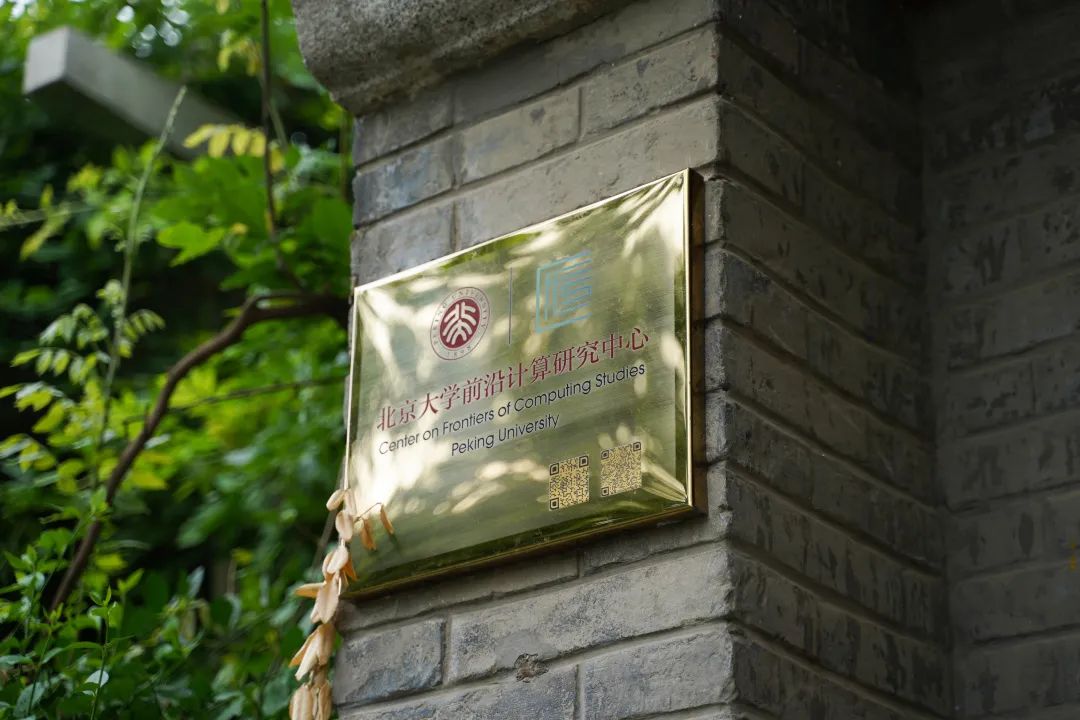
As much as believing in the importance of building a strong foundation of computer science in the early stages of the program, the Turing Program, guided under the wisdom of Professor Hopcroft, is also a strong follower of incorporating freedom and inclusivity into the system of education. The Turing Program aims to avoid indoctrinating students with fixed sets of knowledge, but to ignite curiosity from the students and propel them to develop a long-lasting interest in whichever field that interests them. Students are free to make their own choices regarding their research fields and in-depth study projects. Cross-field perspectives are emphasized and encouraged by teachers, and teamwork has become a critical element in students' education, as it is an important skill-set to acquire in order to achieve further-on successes in their respective careers.
Professor Hopcroft's accomplishments in China
"If you want to be successful in your career, you must do what you like," said Professor Hopcroft during our interview. For more than half a century, Professor Hopcroft has dedicated much of his life and personal success to educating young generations of talents. Computer science pioneers from 15 countries, including Brazil, Chile, Mexico, Saudi Arabia, Tunisia and India were once taught by Professor Hopcroft, as his educational beliefs and teaching paradigms has set the standard for computer science education around the globe. Professor Hopcroft noted that China has given him the invaluable opportunity of improving undergraduate education on a national level. During his time working alongside universities and government support, he became more and more fond of this country and in awe of the genuine effort put in by many to improve the quality of education in post-secondary education and research. Since 2011, Professor Hopcroft had begun his work at Shanghai Jiao Tong University ("SJTU"), where he helped implement a tenure system, hiring and evaluating faculty, as well as undergoing strategic changes to improve educational outcomes. Since then, he has also established the John Hopcroft Center of Computer Sciences at SJTU, where computer sciences were taught on a world-class level. Many of the program graduates have proceeded to continue their studies in US universities. At PKU, with the establishment of the Turing Program, Professor Hopcroft is continuing to strive at achieving success at greater lengths with his extensive knowledge and worldly experience.
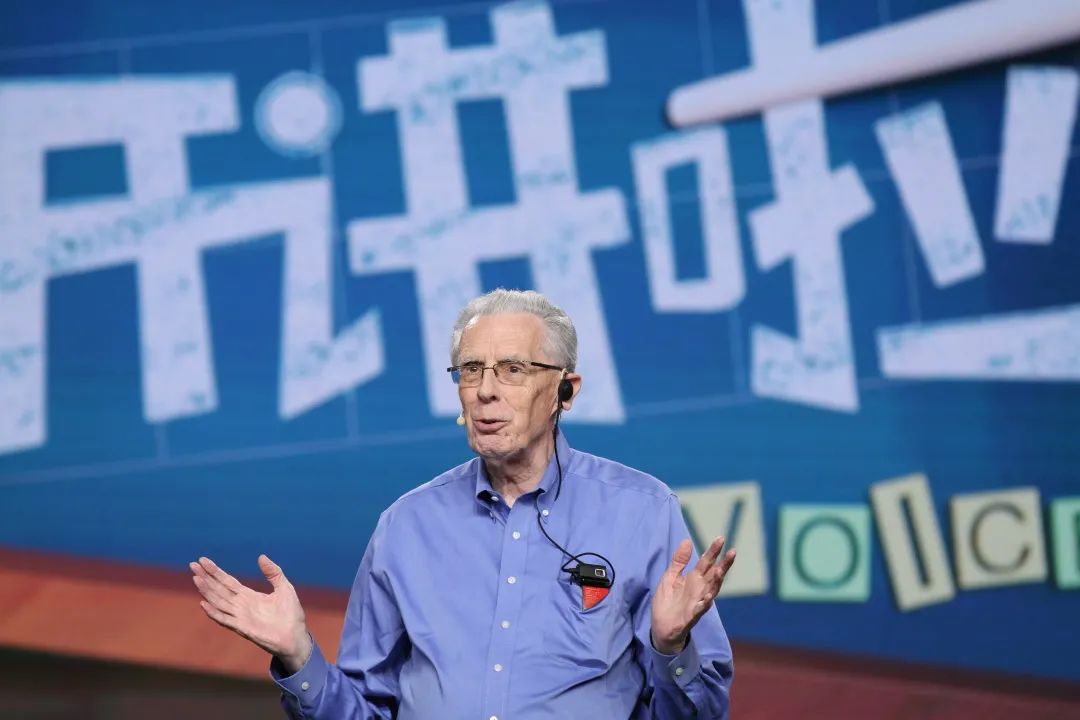
John was featured on CCTV's Voice
Since 2018, Professor Hopcroft proposed and held the first teaching award for the best Chinese undergraduate computer-science teachers in China. Every year, a group of teachers are selected as the best computer science educators, with the ultimate goal of upgrading the overall standard of education across the undergraduate computer science programs in China. Teachers would be evaluated according to their knowledge about the material, whether the content was up-to-date, class engagements during lectures, the portion of students paying attention to class, and so on. The top teachers would be awarded and universities would be ranked by their quality of teaching on a yearly basis. Professor Hopcroft hoped that by holding this critical evaluation each year, it would provide a clearer picture of the quality of education each school has to provide, as well as pinpointing the areas each school has to improve. In 2018, only 9 universities were evaluated for their programs; in 2019, the number rose to 50. With the increasing number of schools participating each year, Professor Hopcroft viewed this as an precious opportunity for improving undergraduate education in China.
Professor Hopcroft's close ties with China
Professor Hopcroft's ties with China were closely related to his deeply-rooted dedication in education. In 2016, to recognize all the incredible accomplishments Hopcroft has achieved to improve China's university education, he was awarded the "Chinese Government Friendship Award", which was the highest recognition to a foreign expert who has made outstanding contributions to China's economic and social progress. "We cannot waste a significant fraction of the world's talent. Improving education in China is an opportunity to improve the lives of tens of millions of individuals," said Professor Hopcroft. Since arriving in China, Professor Hopcroft has made it his own mission to help numerous Chinese universities upgrade their computer science programs, with the ultimate goal of creating elite programs that can be leveled with some of the top-ranked institutions around the world. Living in the information age, Professor Hopcroft noted that there are still enormous areas of computer science to explore nowadays. By providing more elite young scholars invaluable opportunities to dive into the compelling world of computer sciences, Professor Hopcroft hoped that his life-mission would be fulfilled by witnessing his students accomplish something greater than himself in the future - perhaps by developing a new form of technology that would transform all our lives, or by solving critical issues that would improve the way we deal with technology... His dearest wish is that quality education will be available to all undergraduates. The possibilities are endless, therefore it is important to recognize education as the vital key if we want to construct a better world. Professor Hopcroft, as a lifelong educator, scientist, as well as education philosopher and a big believer for a brighter future, will continue to shine his wisdom upon many brilliant students for generations to come.






